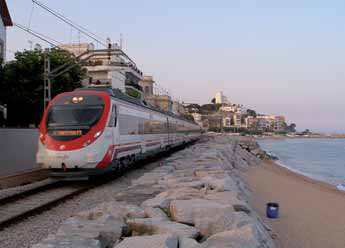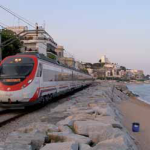Contractual framework
On January 1st this year, the local railway service operated by Renfe Rodalies was transferred from the Spanish Central Government to the Government of Catalonia. 197 trains and around 900 workers provide the service. This is the first time that a regional government in Spain has taken over functions that have been, until now, exclusive to the Central Government.
To manage the transfer, the Catalan Government – Renfe
Operadora Mixed Coordination and Control Body was set
up, with four representatives each from the autonomous
Government and the railway operator. Moreover, the
Catalan Government has appointed the technical director of
Barcelona Metropolitan Transport Authority as technical
coordinator of the Rodalia local railway service.
The powers transferred concern management, regulation,
planning, coordination and inspection of the service, as well
as setting the fares.

According to the transfer agreement, the Catalan Government
undertakes to continue with the current contract-programme
signed with the Spanish Government until 31 December
2010. After that date, the Government will be free to
negotiate a new contract for the 2011-2015 period or to
appoint a new operator from 2012.
For its part, the State will assume the entire Renfe Operadora deficit, which is estimated at around 117.2 million euro per year. This amount includes operating loss, depreciation on investment and financial costs. The agreement specifies that the Catalan Government will assume no losses sustained by Renfe Operadora either in 2010 or in the previous years.
When the current contract-programme expires, the Catalan
Government will be free to renew it with Renfe or to appoint
a different operator to run Barcelona local railway services.
Whether or not Renfe continues to operate the service, the
State Administration will transfer to the Catalan Government an amount equivalent to the deficit generated by the provision of the service.
The Catalan Government may establish different quality
levels and its own fare policy. It may also modify the
standards of service from those agreed between the Spanish
ministry and Renfe (increased frequency, capacity of trains,
etc…).
Actions carried out
Over the first half-year since the service was transferred,
progress has been made over four lines of action:
- Extension of the daily service span and increased weekend
services;
- Increased the comfort, with the purchase of 59 new trains,
reducing the average age of the train fleet to 10.7 years;
- Improved information and customer services, previously
a serious shortcoming;
- Launch of a “mystery shopper” programme;
- Introduction of automatic public address systems and
information monitors at 70 of the 108 stations that
form the network;
- New image for Renfe Rodalies.
As a consequence of these improvements, the average user
quality rating has risen from 6.24 to 6.31 in the six months
since the Catalan Government took over responsibility for
operating the system.
For more: www.atm.cat
